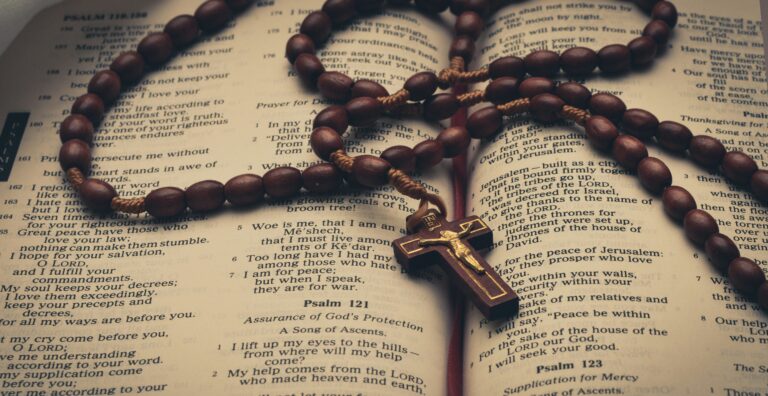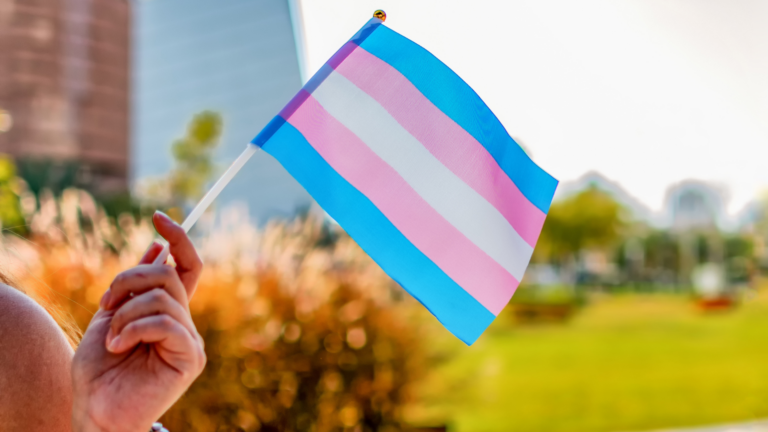Meredith is a newly-ordained deacon in the Global Methodist Church. She currently serves Crosspoint Church in northwest Florida, a vibrant community committed to helping other church communities launch disciple-making movements. Check out this reflection on her excitement for the GMC’s direction of leading with compassion and truth in sexual ethics and what that will mean for Gen Z’s relationship with the Church.
When a young, freshly-minted pastor lives into their ordination vows, they deeply want to help people grow in their faith. So any opportunity to invite a congregant into my cozy office to talk about baptism is a bright spot on my calendar. This particular day, I met with a lovely woman named Brenda (not her real name) who had recently come to a real understanding of God’s love for her. She had finally forsaken years of anxious effort for the freedom of knowing God welcomes her into relationship with Him! What a joy to speak about the outward sign of that experienced grace Brenda would celebrate through the baptismal waters.
So when the conversation took a slight turn, I froze. “I’m just not sure I agree with the church’s decision to not be Methodist anymore. I know I want to get baptized, but I’m not sure I can be a member at a church that doesn’t love gay people,” Brenda said. (To clarify, the congregation disaffiliated from the United Methodist Church but has remained Methodist and is now a Global Methodist congregation.)
Like the average American churchgoer, Brenda held a great deal of confusion surrounding the church’s disaffiliation from its former denomination. Many have assumed that taking a stance for historic Christian sexual ethics equates to judgmental, discriminatory, and decidedly un-Christian behaviors toward LGBTQ+ individuals.
That unfortunate conclusion has not been without evidence, as the global Church has sometimes failed to differentiate same-sex attraction from same-sex sexual activity, or to make sure that all things are done from a deep understanding of the grace we ourselves have received. But despite our own failures along the way, any idea that trusting God’s wisdom is antithetical to showing love and kindness is a deep misunderstanding.
And that MIS-understanding has created deep concern among heterosexual individuals like Brenda who value God’s compassion and fear they are joining a community that does not use love to communicate truth. She seemed to wonder, Do I have to stop loving gay people if I join this church? Many people today connect “loving” with “approving of all a person’s choices,” and many Christians struggle to separate the two. This is deeply troubling. I am proud to be part of a local church, and part of a denomination (Global Methodist Church), that deeply values and expresses Christian compassion. And that same local church and denomination also value scriptural holiness, trusting God’s Word and the Holy Spirit to guide us in all truth (John 16:13).
So what was a girl to do? Six months ago, I might have panicked and passed the question along to another (surely wiser) pastor on staff. I am all-too-familiar with the odd feeling of being a Gen Z Christian who loves faithful and conservative readings of Scripture yet simultaneously sees where we as the Church have sometimes practiced that faithfulness in damaging ways. TikTok proclamations, aggressive rants from opinionated social media “influencers,” fear of the unknown and the “other” have all created a landscape of landmines as my generation seeks to trust “the faith once delivered.” At one point, I would have offered a pithy consolation and shuffled Brenda along to a “better” pastor. However, THIS TIME was different.
Several weeks prior, I’d had the privilege of attending a GMC young clergy conference where we invited Pieter for an Equip workshop. I’ve been a bit of an Equip groupie, following on social media but not having any personal experience of the ministry. Previously working in college ministry and previously experiencing friends share the wounds of the closet and its disastrous effects on their faith, I was relieved that Equip was even a thing. That there ARE ways to honor and engage with friends who experience same-sex attraction or identify in the LGBTQ+ community beyond praying God would change their attraction.
The workshop engaged our honest questions and affirmed what we all had innately known and desperately hoped to prove: holding a historical Christian sexual ethic IS God’s best for all people, regardless of sexual orientation or struggles. This IS loving and beautiful and true. And there IS a way to hold and proclaim that ethic without subjecting people (particularly kids and teens) to the pain and isolation of the closet. The workshop educated us about the history of the LGBTQ+ community’s relationship with the Church and about statistics of many LGBTQ+ believers who walk away from their faith after adopting a revisionist sexual ethic. Equip exhorts parents and pastors that we don’t need to be afraid of approaching these topics with bold compassion and that doing so may actually save the next generation from years of pain that so many have experienced. The workshop also challenged us to raise the bar in how our churches address sexual ethics–are we acknowledging and encouraging vocational singleness? Are we making space and community for these singles to experience family while leveraging their state for God’s kingdom? Are we talking to our church family about divorce, adultery, and sexual stewardship with the same compassionate clarity with which we approach the “gay issue”?
Equip helped me retain the beautiful vision for sexuality within the Body of Christ that I knew existed but didn’t know how to articulate beyond quoting Scripture and hoping for the best.
So after I silently thanked God for His perfect timing, I was able to listen with empathy and confidence as Brenda shared her concerns. I was then able to confidently engage them and guide us back to the primary issue at hand: her baptism! Brenda felt reassured that she could maintain her own historic Christian sexual ethic (“My husband and I know what we believe. Deep down, I know that God designed marriage for one man and woman…”) and hold it compassionately. That she could be a part of a church family who would shepherd her and encourage her in trusting God’s best in every area of life. That we would promise to be a community where we would teach truth without apology and be disciple-makers toward that aim, and ALSO continually welcome every person to experience God’s love before they know the Source of truth.
Our sexual ethics are not the only, or perhaps even the first, issue to engage when it comes to holy living and discipleship. But because American culture is highly sexualized, and because Scripture does offer particular emphasis on the power of sexual intimacy versus immorality, it is often a front-line issue. That means we must be ready to present a theology of sexuality with clarity and with constant focus on the gospel of Jesus. Becoming educated about these issues is what helps us pastor people in their situations and then run with them straight for the cross. “Fixing our eyes on Jesus, the author and perfecter of our faith” does not mean we avoid practical issues or contemporary debates–it means we leverage them for the sake of glorifying God and inviting others into God’s Kingdom. As a Gen Z pastor looking at a generation hungry for honesty and spirituality, this offers (what looks like) a dying Church a great invitation. There are no tricks, no cliches, no glistening promises that can surpass the Hope of the Ages. When we honestly offer Jesus to my generation and the generations to come, equipped with knowledge and emboldened with well-founded hope, they will respond. And we will see a world awakened to the goodness of God and the power of the gospel.
Through the ministry of Equip, I was able to clearly articulate the connection between God’s deep love and God’s insistence upon holy living (for our good and for God’s glory) in the area of sexual ethics. What a joy to speak to that wonderful reality! In a world full of polarization and division, I am grateful for a God who clearly defines the way to the good life and whose compassion leads us every step of the way.






